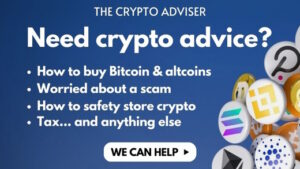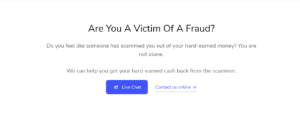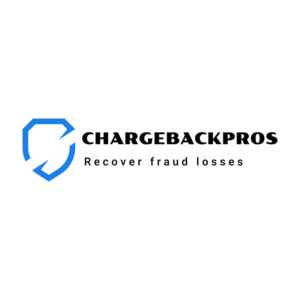Credit cards remain the most popular way to pay for things online, but concerns about debt and interest charges have motivated many consumers to embrace alternative payment platforms. As one of the oldest and most trusted online payment systems PayPal remains a very popular choice among consumers. Merchants like it too, because it’s easy to integrate into their existing checkout pages.
PayPal also bypasses the chargeback process associated with credit cards, but that doesn’t mean you won’t encounter fraud and disputes on the platform. PayPal scams are increasingly common, and can show up in a variety of different forms and methods that can trip up sellers who aren’t familiar with them. Let’s talk about PayPal scams and how you can protect yourself from falling victim to them.
- PayPal Shipping Address Scams
- PayPal Overpayment Scams
- PayPal Fake Email Scams
- PayPal Phishing Scams
- Hacked PayPal Scams
- Fake PayPal Accounts
- What Can You Do to Avoid PayPal Scams?
- How Can You Spot a PayPal Scammer?
- How Does PayPal Deal With Scams?
- What Is a PayPal Business Account?
PayPal Shipping Address Scams
Shipping address scams begin after an order has been placed and the seller has received the payment. Before the order ships, the scammer contacts the seller and asks them to ship the item they purchased to a new delivery address.
The address will turn out to be invalid, and after several failed delivery attempts, the shipping company will flag the order as undeliverable in their system. The scammer then contacts the shipping company and gives them a new, valid shipping address.
When the scammer gets their shipment, they file a complaint with PayPal claiming that the item was never delivered. The seller has no proof of delivery, because their transaction detail shows only the original, invalid address.
PayPal’s Seller Protection doesn’t cover shipments made to addresses that aren’t on file, so the seller loses both the item they shipped and the payment funds.
To avoid these schemes, check that the shipping address is valid before sending the item, and talk to your shipping company about making sure customers can’t reroute orders.
PayPal Overpayment Scams
Sometimes, a scammer may make a payment to a seller’s PayPal account that exceeds the cost of the item they are purchasing. Then they will contact the seller, explain that they overpaid, and ask for the remaining balance to be paid back to them.
After the seller sends back the overpayment amount, the scammer sends a complaint to PayPal claiming that their account was compromised and that they never meant to send a payment to the seller in the first place. PayPal reimburses the full original payment back to the scammer, and even if the seller hasn’t shipped out the purchased item yet, they’ve still lost the “overpaid” amount they sent back.
Fortunately, this scheme is easy to avoid. One option is to simply refuse to accept any direct payments through PayPal, instead insisting that customers use the checkout system. If you really need to accept direct payments, you can still prevent this scam by refunding the entire purchase and requesting a new payment for the correct purchase amount.
PayPal Fake Email Scams
Scammers may send sellers forged emails that appear to be from PayPal, stating that the scammer paid money into the seller’s account and that PayPal has placed a hold on the funds and will not release them until the seller sends a shipment tracking number.
Holding funds like this isn’t something PayPal actually does. The scammer is hoping that the seller will rush to ship the item and send over a tracking number in order to receive the money. Once the item has been shipped, it’s too late—the scammer will get an item that they never paid for, and the seller will eventually realize that PayPal was never holding money for them.
Some fraudsters may also attempt to make a convincing copy of a normal PayPal sale notification email.
Since many sellers take the customer information from these emails and ship the item out right away, a fake email could result in a real product shipment. Since this scam doesn’t go through PayPal’s systems at all, there’s nothing they can do to protect sellers from it.
If you’re ever uncertain whether or not you shipped out an order, check your own internal records—don’t rely on what an email is telling you.
PayPal Phishing Scams
PayPal sellers can also be targeted by phishing scams. A seller might receive an email that appears to be from PayPal, indicating that a pending fund transfer awaits their confirmation. It will include a clickable link or button.
The link leads to a fake PayPal site that will ask for the seller’s login credentials. If the seller enters their email and password into the fake site, the scammer will be able to use them to log in to the seller’s actual PayPal account, from which they can make payments or withdraw funds.
Traditional phishing scams offering millions of dollars for a small investment in time and money have been around almost as long as email. Now, these scammers are targeting PayPal users. These fraudsters will ask for a small amount for some sort of processing fee or documentation with the promise of big financial returns in terms of lost inheritances or other found money. Of course, they never plan on sending you any money, and simply walk away with the smaller amount you sent. Despite the fact that this scheme has become fairly well-known, millions of people still fall victim to it every year.
Another scam that has been going around lately is a text message claiming that your account has been compromised and PayPal had to lock it. The message will include a link that you’re supposed to click in order to reset your password, but of course the link actually takes you to a fraudulent website designed to steal your information.
Phishing attempts and other kinds of fake email or SMS scams can be avoided by practicing good cybersecurity:
- Always look at the actual address an email was sent from, not just the display name.
- If an email seems unusual or suspicious, don’t click any links or download any attachments.
- Never enter personal information such as a credit card number or password into a webpage that was linked to you. When you need to log into PayPal or any other website, just open up a new browser window and type in the URL yourself.
- If an email urges you to call a phone number, don’t call it. You should always be able to manage any PayPal issues online by logging into your account from a secure device.
Hacked PayPal Scams
When a scammer has successfully hacked into somebody else’s PayPal account (often by using a phishing scam), they can make purchases and send payments with the money from the account they’ve taken over.
A seller might receive notice of a purchase and ship an item, only to later be told by PayPal that the transaction was fraudulent and that the transaction must be reversed. PayPal’s Seller Protection Program can reimburse merchants in these situations if the transaction is eligible. Merchants using PayPal should ensure that they are meeting all the requirements of the Seller Protection Program in order to protect themselves from purchases made with hacked accounts.
Fake PayPal Accounts
Some PayPal scams involve setting up a new account and pretending that account belongs to someone else. While not exclusive to PayPal, fake charities are a common scam, especially in the wake of disasters that have received a lot of media attention.
Scammers set up a PayPal account and one or more social media pages claiming to be a charity organization devoted to helping people impacted by the disaster. They then use paid advertising or bot accounts to spread posts by the fake charity account encouraging people to donate.
The trickiest part about this scheme is that most people never even realize they’ve been scammed, thinking their money went to charity when it actually went into a scammer’s pocket.
In another scheme, someone might create a fake storefront using the name of a real business and direct buyers to send money to their PayPal account. While not very common, this scam can be especially harmful to the merchant whose name was used, leaving them with a bunch of dissatisfied customers they never had anything to do with.
What Can You Do to Avoid PayPal Scams?
Sellers can avoid PayPal scams by watching for suspicious orders, taking advantage of the Seller Protection Program, and practicing good cybersecurity.
Here are a few more specific tips to help you avoid falling victim to PayPal scams:
- Before accepting a payment, look out for red flags. Requests to rush shipments, accept partial payments, or accept payments split up between multiple PayPal accounts are all strong indicators of fraudulent activity.
- Items that have a high resale value or are in high demand are especially attractive to fraudsters. Before shipping out especially valuable items, double check shipping and billing addresses to make sure they match.
- Even customers with valid credentials may commit friendly fraud out of ignorance or impatience. When shipping high-value items, insist on signature confirmation on delivery.
- Sign up for PayPal’s Seller Protection Program and PayPal will reimburse you for certain types of fraud.
- Block customers who file disputes or make fraud claims. Fraudsters will often target the same seller several times if no action is taken against them.
- When receiving any email from PayPal, check the actual email address, not the sender name, to make sure it’s legitimate. If in doubt, log in to your account in a new tab to confirm the information.
- Only ship purchases to the address provided in the transaction details.
Many instances of fraud happen because sellers don’t know the warning signs to watch out for. If you know what to look for, you can exercise caution and protect yourself from scammers, thieves, and hackers.
FAQ
How Can You Spot a PayPal Scammer?
The best way to see a scammer is to know that PayPal will never ask you to divulge private information over the phone or via email. If you receive an email with a link from PayPal, always check the URL. Whenever in doubt, contact PayPal directly.
How Does PayPal Deal With Scams?
The PayPal Buyer Protection Program helps protect buyers from fraud, and PayPal offers dispute and arbitration services for buyers and merchants.
What Is a PayPal Business Account?
Businesses can use a Business Account to access more robust business controls, which include focused services to protect merchants from fraud.
Thanks for following the Chargebackpros blog. Feel free to submit topic suggestions, questions or requests for advice to: info@chargebackpros.org











